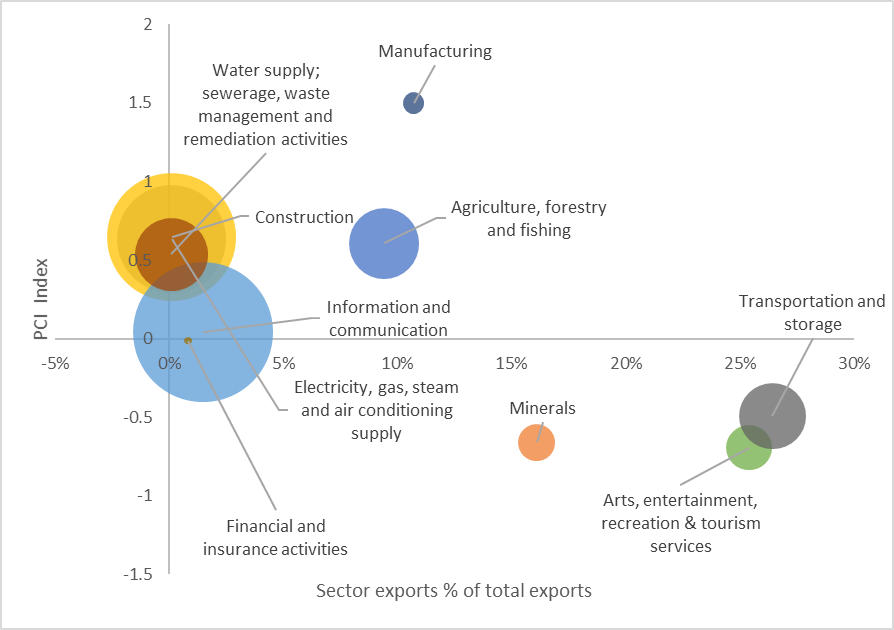- Home
- Publications
- What Economic Complexity Theory Can Tell Us About The EU’s Pandemic Recovery And Resilience Plans
What Economic Complexity Theory Can Tell us about the EU’s Pandemic Recovery and Resilience Plans
 Pub. Date
Pub. Date
 Pub. Type
Pub. Type

Authors

Dr Corrado Macchiarelli
External Authors

Hausmann, R

Santos, M

Giacon, R
Related Themes
Macro-Economic Dynamics and PolicyIssue
28
A little over a year ago, the EU’s political leaders agreed on an unprecedented fiscal package – dubbed ‘Next Generation EU’ – to aid Europe’s recovery from the pandemic. Ricardo Hausmann, Miguel Angel Santos, Corrado Macchiarelli and Renato Giacon write that economic complexity theories can provide a useful tool for evaluating whether the recovery and resilience plans submitted by EU member states to receive this funding are well-designed. Assessing the case of Greece, they argue that investments should be tailored toward export-oriented sectors and aim to help close the country’s product complexity gap with other EU states.
Related Blog Posts



Public Debt Sustainability and Fiscal Rules
Stephen Millard
Benjamin Caswell
05 Feb 2024
4 min read

Related Projects
Related News

Call for Papers: Lessons From Quantitative Easing & Quantitative Tightening
09 Feb 2024
1 min read



Related Publications

Inflation Differentials Among European Monetary Union Countries: An Empirical Evaluation With Structural Breaks
20 Nov 2023
National Institute Economic Review

The Macroeconomic Effects of Re-applying the EU Fiscal Rules
20 Nov 2023
National Institute Economic Review

Another Look at a Sensible Fiscal Policy for the Sharp Rise in Government Debt
20 Nov 2023
National Institute Economic Review

Monetary Policy: Prices versus Quantities
20 Nov 2023
National Institute Economic Review
Related events

Assessing Cycles and Structural Changes in Markets

Business Conditions Forum

2022 Dow Lecture: The Economy and Policy Trade-Off





